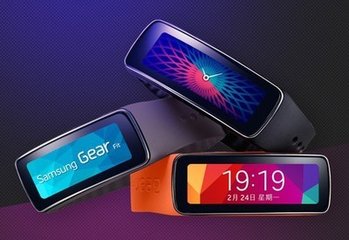This is Scientific American 60 seconds Tech, I'm Larry Greenemeier, got a minute?
這里是科學美國人60秒科技頻道,我是拉里·格林梅耶。
Apple, Google and other tech companies have spent years gathering info about your purchasing habits, entertainment preferences and social circles. They want to know what makes you tick. Now they also want to know about your actual ticker. The tech firms are targeting your vital signs with health apps and online data repositories.
蘋果,谷歌以及其他科技公司花費數年時間收集有關用戶消費習慣,娛樂偏好以及社會圈的信息。他們想知道什么能帶給用戶快樂。但是現在他們還想了解你的心臟。以上科技公司努力獲得并分析健康應用程序或是在線數據庫上的用戶健康信息。
Apple's new Health app will gather blood pressure, heart rate, and stats on diet and exercise from any number of mobile apps and fitness devices, including Nike+ wearables. Apple may even start selling its own wrist watch-like health-monitoring device this fall, along the lines of Samsung's Gear Fit and its upcoming Simband.
蘋果一新款健康APP會收集用戶血壓,心率,飲食情況,并通過耐克等品牌的運動追蹤器和收集應用程序檢查用戶的運動情況。今年秋季,蘋果也有望推出自己品牌的腕式健康檢查儀器,與此同時,三星也會推出智能手環GearFit以及健康追蹤腕帶Simband.

Google may challenge Apple with its own Google Fit health service. This effort would be Google's second crack at a health info portal, after shuttering Google Health in January 2012 due to lack of interest.
為挑戰蘋果,谷歌也會推出自己的健康儀器。此舉是谷歌繼2012年1月由于用戶大多不感興趣而以失敗告終的GoogleHealth(是谷歌為用戶提供的一個管理自己病歷的平臺)之后進軍健康追蹤領域的第二戰。
Meanwhile, Microsoft, which may soon offer its own heart-monitoring smartwatch, has offered its similar HealthVault service since 2010.
同時,微軟也即將發布自己的心率監控腕表。早在2010年。微軟就提供過“健康基金庫”的服務。
這些應用程序都會刺激人們購買類似產品或服務,鼓勵人們培養健康的生活方式。當然,也增加了用戶使用該該產品的概率。
Thanks for the minute for the Scientific American 60 Seconds Tech, I'm Larry Greenemeier.
感謝收聽科學美國人60秒科技頻道。











